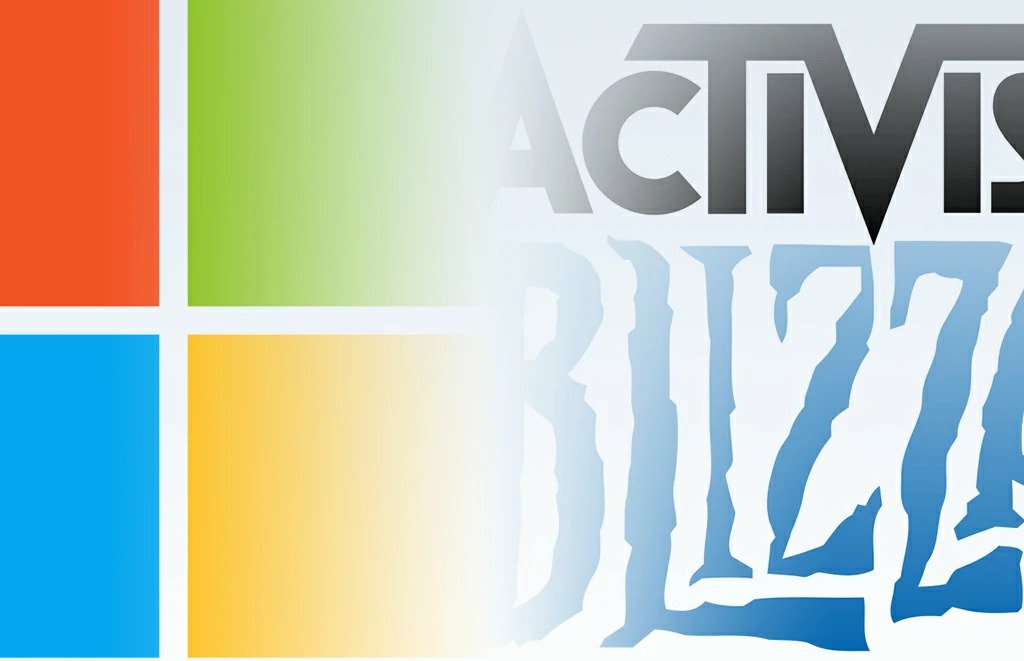
Some dissatisfied Atari workers decided to form their firm in 1979. Activision pioneered the concept of "third-party" game production by creating and releasing games on behalf of other firms.
Since then, Activision Blizzard, the firm that is now Activision Blizzard, has been acquired by Microsoft for a whopping US $68.7 billion (about a $95.6 billion), making it the most outstanding transaction in gaming history.
Microsoft's acquisition of Call of Duty, Diablo, Starcraft, Candy Crush, and World of Warcraft is also a massive deal regarding the gaming brands it currently controls. What does the sale of these brands' assets signify for its fans?
Why Microsoft Purchased A Billion Dollar "Activision"?
The video game business has seen several high-dollar acquisitions in the past. As a result of the merger of Activision and Blizzard in 2008, Activision Blizzard became one of the biggest video gaming businesses.
For Microsoft and Sony, buying successful pre-existing development companies is typical for acquiring their intellectual property (IP).
In contrast, Microsoft has taken a more confrontational stance. As of 2014, it has acquired Minecraft creator Mojang for US $2.5 billion and ZeniMax, the publisher of the Elder Scrolls series, for a reported US $7.5 billion. Microsoft has surpassed Tencent and Sony as the industry's third-largest firm after it purchased Activision Blizzard.
This is in line with Microsoft's popular video games industry model, which focuses more on expanding subscriptions to its Game Pass program than on selling game titles. Subscribers to Game Pass pay a monthly fee for unlimited access to a vast digital library of games.
Microsoft announced the takeover of Activision Blizzard in a press release announcing the 25 millionth user of Game Pass. That works out to around US $400 million (or a $556 million) in monthly income for each customer who pays US $16 a month.
Xbox Game Pass will be able to provide a far more comprehensive choice of titles, thanks to Microsoft's acquisition of Activision Blizzard.
Gaming Industry Giants
By making these brands exclusive to Game Pass, Microsoft might drive players away from competing systems like the PlayStation 4 or distribution networks like the Steam platform. In other words, it has the unending potential to entice customers into its own private space.
This has become a standard approach. Because of subscription-based digital platforms, we've transitioned from product owners to renting them.
Individual video games are no different in this regard as well. It's no more a case of buying a game once and being done with it; instead, titles like Call of Duty, Hearthstone, and Fortnite (to name just a few) have their economies in which players are incentivized to spend money on battle passes, cosmetics, and new content.
It's a win-win situation for gamers and the firms who control these games.
By purchasing Activision Blizzard, Microsoft has essentially acquired a city with existing tenants in the player communities of Call of Duty, Hearthstone, World of Warcraft, and many more games.
Blizzard games like Hearthstone and World of Warcraft have millions of players already engaged in their closed systems, including many in the difficult-to-break Chinese market. These gamers may be exploited for personal information and rented out to other parties.
How do Game Players and Game Developers Take This Acquisition?
Though Microsoft may preserve more of its freshly acquired properties for its platforms in the future, Players on PC will have to switch from Steam to Microsoft Game Store to play these games, which is an annoyance but not a significant adjustment.
Players of PlayStation and Mac may find themselves forced to buy PCs or Xboxes in the future if they don't want to miss out on future games in these series.
Some fear the continuing consolidation of large corporations may stifle the video game industry's originality and innovation. Most of the industry's income is produced by a small number of conservative enterprises; thus, this is unlikely to happen.
- According to Aphra Kerr's book Global Games, the top 10 video game firms generated 49% of the industry's total revenue in 2015. Despite this concentration of wealth, new genres are nearly invariably created by smaller, more autonomous entities with significantly fewer resources than the centers of power.
- More powerful gaming engines like Unity and Unreal and wider audiences available via digital markets like Steam and Xbox Game Pass have contributed significantly to the emergence of new and varied genres during the last decade.
- The scenario is far from ideal, but the video game industry's most influential and inventive firms have seldom been the same. It is doubtful that the most recent purchase will limit inventiveness.
- However, the stakes in this historic transaction go well beyond the money involved. Activision Blizzard's CEO, Bobby Kotick, has been under heavy pressure to leave for months because of claims and lawsuits of harassment, abuse, and sexism in the company's workplaces. Microsoft must address the charges of a hazardous environment, as Kotick is ready to leave the business with US $400 million.
- The recent transaction has likely highlighted the most critical issue. It is not which hardware would have access to which games but whether Microsoft will assume accountability for bettering the working environment for game creators. We'll have to see what happens.
What Is The Future Of Activision With Microsoft?
Gaming is presently the world's most popular and fastest-growing type of entertainment, with more than three billion individuals playing games anytime. Microsoft Corp. has acquired one of the world's most prominent game developers, Activision Blizzard Inc. (ATVI) (NYSE: MSFT). This purchase for Microsoft's game company will give the building pieces for the metaverse as it accelerates expansion across mobile, PC, console, and cloud.
A total of $68.7 billion in cash, including Activision Blizzard's net cash, will be paid for Activision Blizzard by Microsoft at a price per share of $95.00. When the deal is complete, Microsoft will become the world's third-largest gaming firm by revenue, behind only Tencent and Sony in sales.
"Warcraft," "Diablo," "Overwatch," "Call of Duty," and "Candy Crush" are just a few of the legendary properties that Activision, Blizzard, and King studios want to acquire. Nearly 10,000 people work in studios all over the globe. We can hope that Microsoft will continue to bring amazing games for users in the future.




